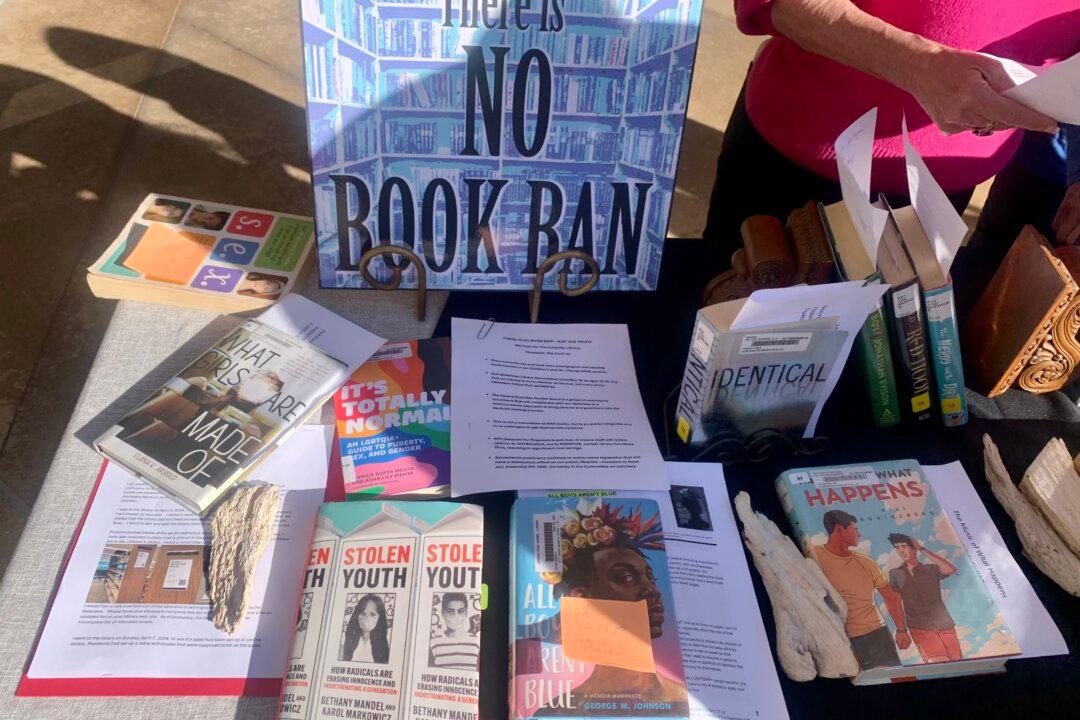A group of Huntington Beach residents organized what they called a pop-up event April 16 to raise awareness over what they say are “inappropriate” books in the children’s section of the city’s libraries.
The battle over whether some children’s books contain sexual content—including those that mention homosexuality and transgenderism, and illustrations of nude bodies and sex acts for educational purposes—has been a topic of debate in the city over the past year.





